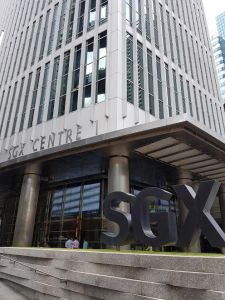OCBC share price ready to explode?
Despite being consistently ranked as one of the strongest banks in the world, OCBC’ stock is perennially the least expensive among the three local banks. However, like DBS and UOB, OCBC share price enjoyed a dizzy spell for the past two years, storming from $7.90 in February 2016 to reach the giddy high of $14 this year.
The key reason for the bullish run of the local bank stocks should be attributed to the improving economy condition in Singapore. However, recent government property curbs and short-selling activities had pulled the brake on the surging form of OCBC share price. Can OCBC share price regain its mojo and returns to form?
The recent correction in OCBC share price is considered healthy, so investors should not panic. In fact, 2QFY2018 results had been pretty strong. OCBC reported net profit after tax of $1.21 billion for the second quarter, climbing 16% from S$1.04 billion a year ago, and 9% from $1.11 billion in the previous quarter. The robust results provided the narrative for OCBC’s growth momentum.
Due to the volatility of bank stocks, the key to making money from this counter is to have a strategy of setting the right entry and exit price.
Read More




































